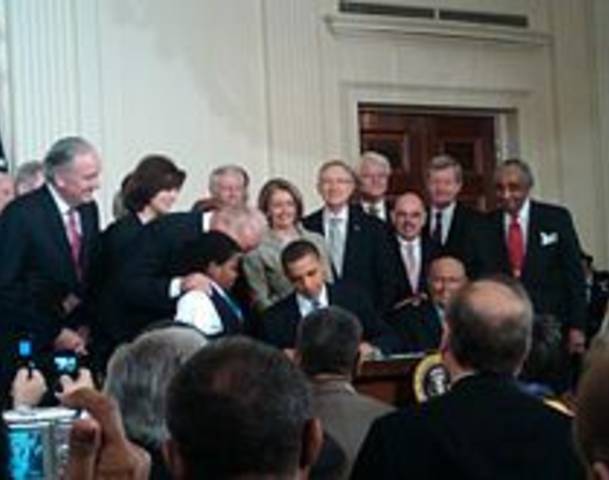California governor vetoes bills tied to individual mandate in the Affordable Care Act

According to the governor’s statement, he vetoed the legislation because if passed the laws would force health insurers to carry out the ACA in California even if federal leaders change the law in any way, in particular the individual mandate requiring everyone to have health insurance by 2014 or pay a penalty. The governor wants a stronger tie to the federal law, which could be determined by who is elected president.
"Without the strong foundation that federal law provides, a state-level mandate on insurers alone could encourage healthy people to wait until they got sick or injured before purchasing coverage," Brown wrote in his veto message. "This would lead to skyrocketing premiums, making coverage more unaffordable."
The two vetoed bills would have required insurers and health plans to cover all individuals, often called "guaranteed issue." That protection had support from 85 percent of Americans in a March New York Times/CBS News poll. “The governor supported the ideas in Senate Bill 961 and Assembly Bill 1461, but wanted more thorough language tying the measures to ongoing changes in the federal Affordable Care Act,” said Diana S. Dooley, his Health and Human Services secretary.
Dooley appeared with legislative authors and supporters to discuss the range of health care bills Brown acted on—and mostly signed. But Brown's vetoes appeared to dampen the advocates' enthusiasm. Proponents said lawmakers could enact new laws later to respond to any federal changes.
Authors of the bills do not agree
"These bills contain the most meaningful provisions of the president's Affordable Care Act," said Sen. Ed Hernandez, D-West Covina, author of SB 961 and chairman of the Senate Health Committee. "And by vetoing these bills, the governor has unnecessarily set back part of our ability to implement part of the ACA."
Dooley disagreed, saying there remains enough time before health care expansion in 2014 to address Brown's concerns. President Obama and federal lawmakers set parameters in the 2010 Affordable Care Act, but California still must enact laws enabling the state to carry out the national changes.
During the final month of legislative session, insurers raised concerns about a scenario in which they would have to cover sick individuals at low rates while healthy individuals could avoid insurance if federal leaders eliminate the individual mandate. The state bills did not leave enough flexibility to account for changes in the ACA, the California Association of Health Plans said.
Premiums for smokers
Health organizations in general support insurance protections for smokers because they believe higher premiums would drive them away from smoking-cessation programs and early intervention disease treatment. Non-profit HMOs like Kaiser Permanente have a long history of smoking-cessation programs.
Brown signed other health care bills in the final month of the session, including legislation that establishes a bare-minimum list of "essential" benefits insurers must provide in California. Anthony Wright of Health Access California said that helps prevent consumers from signing up for "junk insurance" that excludes various treatments in the fine print.
Essential benefits
A set of health care service categories must be covered by certain plans, starting in 2014, according to Kaiser Health News:
“The Affordable Care Act ensures health plans offered in the individual and small group markets, both inside and outside of the Affordable Insurance Exchanges (Exchanges), offer a comprehensive package of items and services, known as essential health benefits.
“Essential health benefits must include items and services within at least the following 10 categories: ambulatory patient services; emergency services; hospitalization; maternity and newborn care; mental health and substance use disorder services, including behavioral health treatment; prescription drugs; rehabilitative and habilitative services and devices; laboratory services; preventive and wellness services and chronic disease management; and pediatric services, including oral and vision care.
“Insurance policies must cover these benefits in order to be certified and offered in Exchanges, and all Medicaid state plans must cover these services by 2014.”
Reactions to the governor’s vetoes have riled California voters, mainly because the veto appears to be protecting the health insurance companies in California. Rejecting the pre-existing condition is the heart of the ACA and the single most important provision. Without it, Californians are left “on their own” against health insurance companies.
Sonya Schwartz, program director at the nonpartisan think tank National Academy for State Health Policy, lamented a "missed opportunity." She said states could have been more innovative rather than locking in minimum benefits based on what was sold to most customers in 2012. But she noted that states were hesitant to make major changes and careful not to go beyond the 10 categories of minimum benefits called for in the law or else consumers would be on the hook for those costs, according to Kaiser Health News.
Get Involved
If you'd like to help with maintaining or developing the website, contact us.
Publish
Publish your stories and upcoming events on Indybay.


